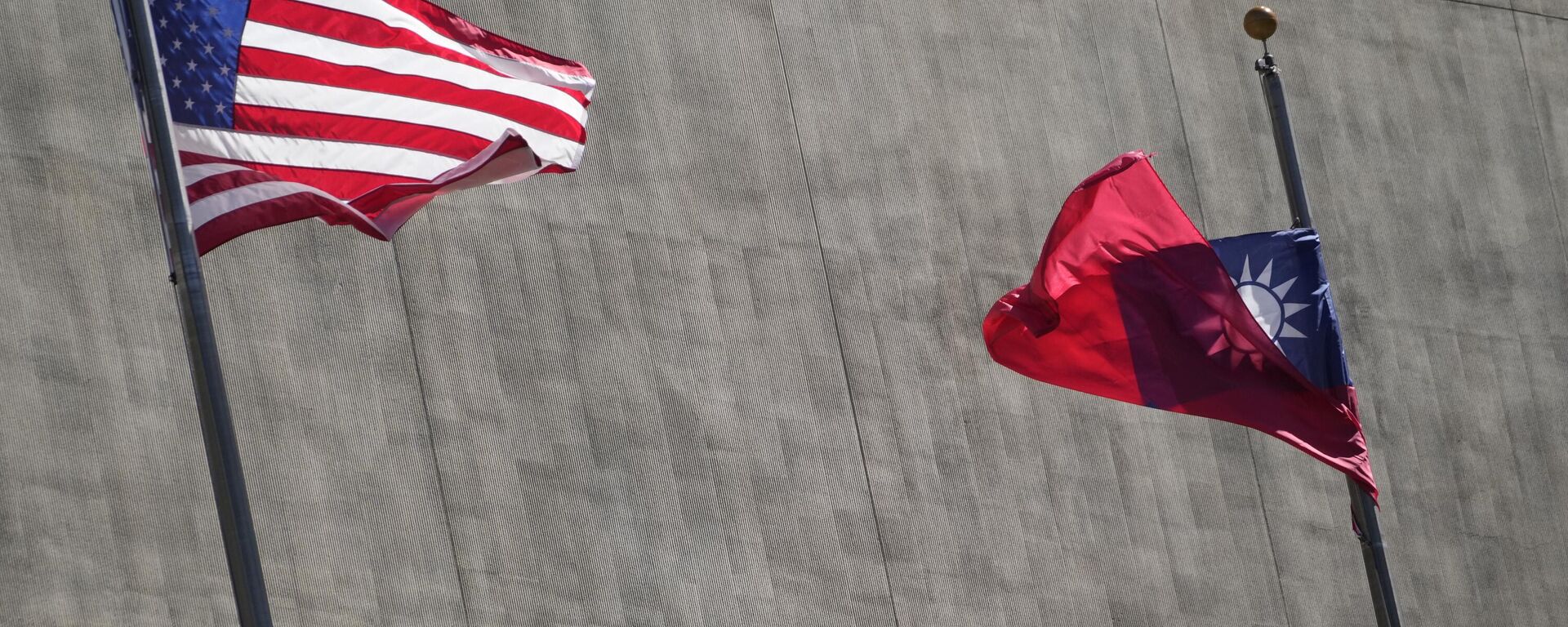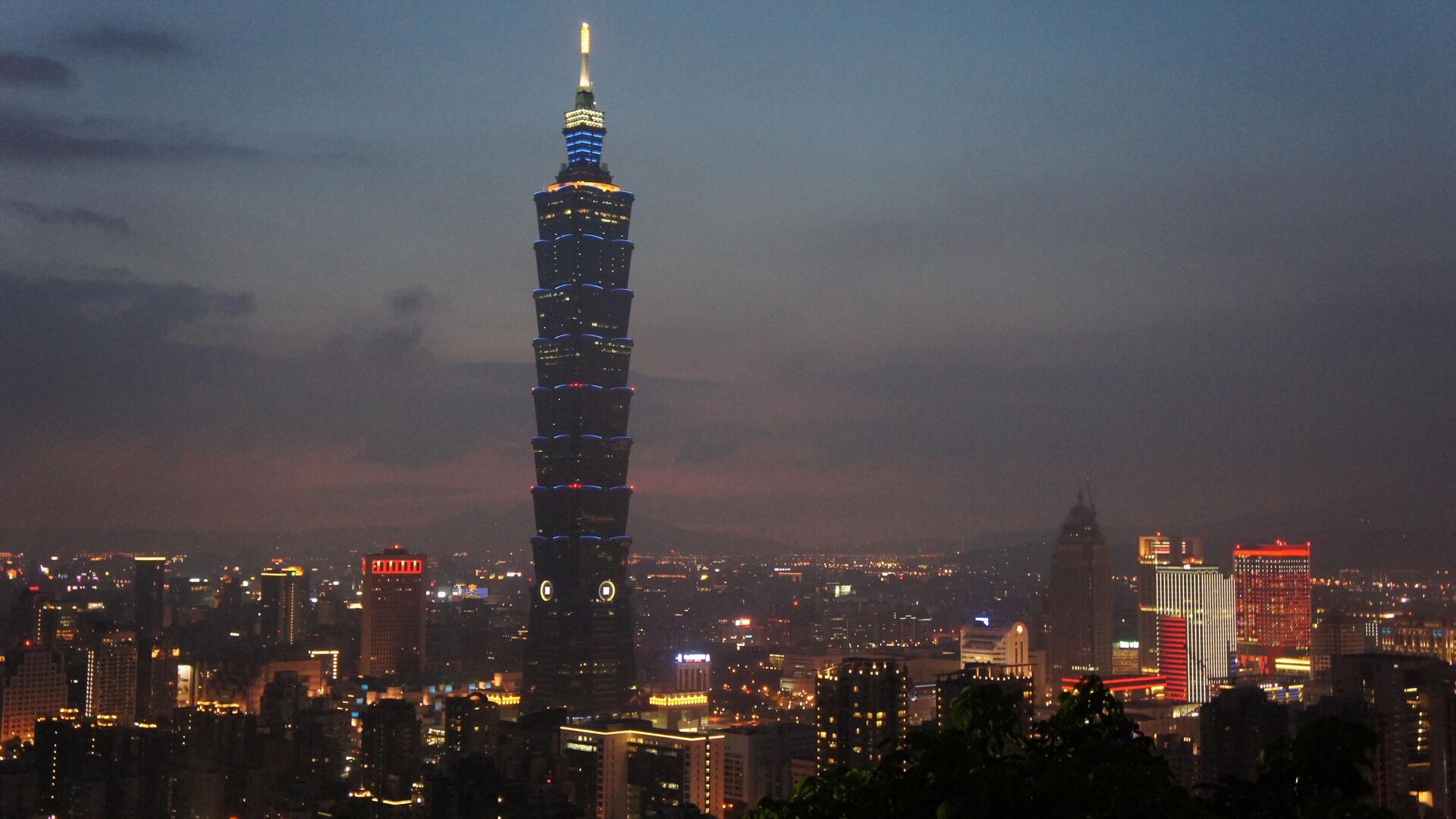https://sputnikglobe.com/20240117/china-to-oppose-taiwans-independence-promote-peaceful-reunification-1116222142.html
China to Oppose Taiwan's Independence, Promote 'Peaceful Reunification'
China to Oppose Taiwan's Independence, Promote 'Peaceful Reunification'
Sputnik International
China will continue to push back at Taiwan's independence in 2024, while also promoting cooperation and peaceful reunification under the "one country, two systems" policy, a spokesman for China's Taiwan Affairs Office said on Wednesday.
2024-01-17T09:59+0000
2024-01-17T09:59+0000
2024-01-17T09:59+0000
asia
taiwan
china
beijing
democratic progressive party (dpp)
reunification
one china policy
https://cdn1.img.sputnikglobe.com/img/07e7/01/0e/1106317765_0:159:3077:1890_1920x0_80_0_0_26fff75989f3a725326b22190de9820f.jpg
"In the new year, we will steadfastly adhere to the policy of 'peaceful reunification' and the 'One-China' principle, in line with the 1992 Consensus. We will follow the common aspiration of compatriots on both sides of the Taiwan Strait for peace, development, exchanges and cooperation, to unwaveringly oppose Taiwan independence, to maintain peace, expand exchanges, promote cooperation, deepen integration and advance reunification," Chen Binhua told a briefing. He also expressed hope that the Taiwanese "will stand on the right side of history and work with us to remove obstacles and jointly promote the peaceful and comprehensive development of relations between the two sides." Chen also said that the results of the recent elections on the island cannot question the fact that Taiwan is a part of China, neither would they change the model of the relations between Beijing and Taipei and their inevitable reunification. On Saturday, Taiwan held a general election in which pro-independence candidate Lai Ching-te of the ruling DPP party won with 40.05% of the vote to head the island's administration. His inauguration is scheduled for May 20. Meanwhile, the DPP itself lost 11 seats in the island's parliament. Taiwan has been governed independently of mainland China since 1949. Beijing views the island as its province, while Taiwan — a territory with its own elected government — maintains that it is an autonomous country but stops short of declaring independence. The 1992 Consensus refers to a meeting between Beijing and Taipei delegations during which they agreed to the one-China principle. Beijing opposes any official contacts of foreign states with Taipei and considers Chinese sovereignty over the island indisputable.
https://sputnikglobe.com/20240114/us-delegation-to-travel-to-taiwan-on-sunday-just-after-regional-leader-elections-1116154727.html
taiwan
china
beijing
Sputnik International
feedback@sputniknews.com
+74956456601
MIA „Rossiya Segodnya“
2024
Sputnik International
feedback@sputniknews.com
+74956456601
MIA „Rossiya Segodnya“
News
en_EN
Sputnik International
feedback@sputniknews.com
+74956456601
MIA „Rossiya Segodnya“
Sputnik International
feedback@sputniknews.com
+74956456601
MIA „Rossiya Segodnya“
taiwan's independence, peaceful reunification, promoting cooperation
taiwan's independence, peaceful reunification, promoting cooperation
China to Oppose Taiwan's Independence, Promote 'Peaceful Reunification'
BEIJING (Sputnik) - China will continue to push back at Taiwan's independence in 2024, while also promoting cooperation and peaceful reunification under the "one country, two systems" policy, a spokesman for China's Taiwan Affairs Office said on Wednesday.
"In the new year, we will steadfastly adhere to the policy of 'peaceful reunification' and the 'One-China' principle, in line with the 1992 Consensus. We will follow the common aspiration of compatriots on both sides of the Taiwan Strait for peace, development, exchanges and cooperation, to unwaveringly oppose Taiwan independence, to maintain peace, expand exchanges, promote cooperation, deepen integration and advance reunification," Chen Binhua told a briefing.
He also expressed hope that the Taiwanese "will stand on the right side of history and work with us to remove obstacles and jointly promote the peaceful and comprehensive development of relations between the two sides."
Chen also said that the results of the recent elections on the island cannot question the fact that
Taiwan is a part of China, neither would they change the model of the relations between Beijing and Taipei and their inevitable reunification.
"The results of the elections in the Taiwanese region showed that the Democratic Progressive Party [DPP] does not represent mainstream opinion on the island," the official said.
On Saturday, Taiwan held a general election in which pro-independence candidate Lai Ching-te of the ruling DPP party won with 40.05% of the vote to head the island's administration. His inauguration is scheduled for May 20. Meanwhile, the DPP itself lost 11 seats in the island's parliament.

14 January 2024, 09:39 GMT
Taiwan has been governed independently of mainland China since 1949. Beijing views the island as its province,
while Taiwan — a territory with its own elected government — maintains that it is an autonomous country but stops short of declaring independence. The 1992 Consensus refers to a meeting between Beijing and Taipei delegations during which they agreed to the one-China principle. Beijing opposes any official contacts of foreign states with Taipei and considers Chinese sovereignty over the island indisputable.



